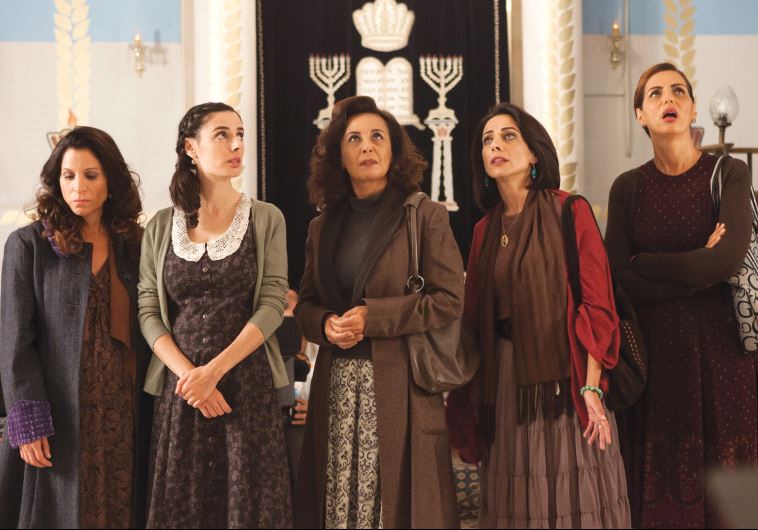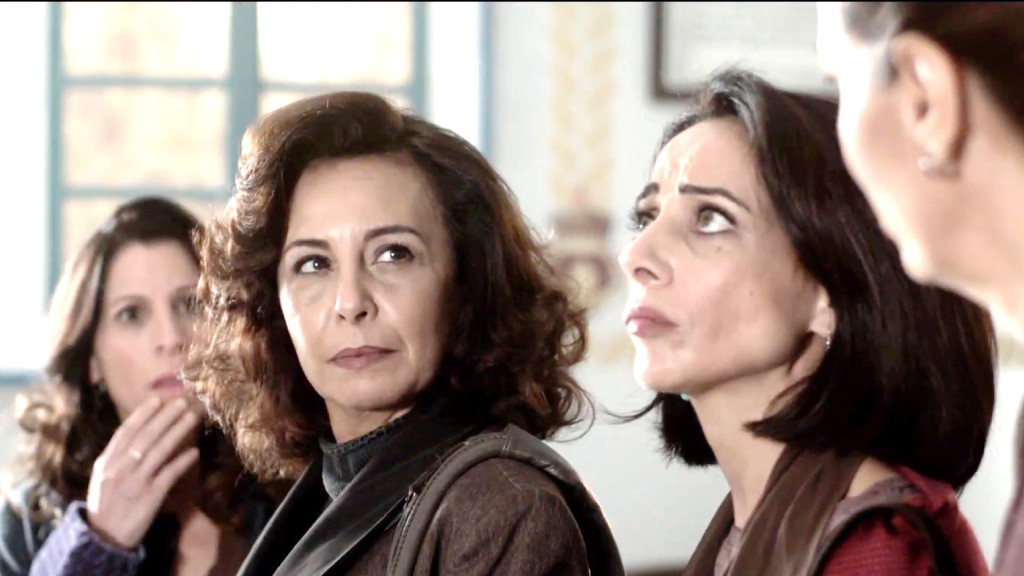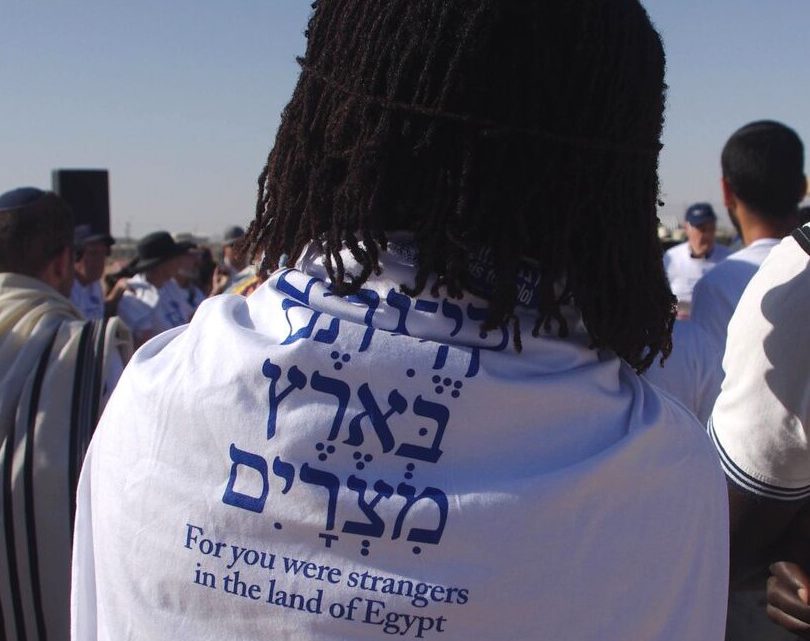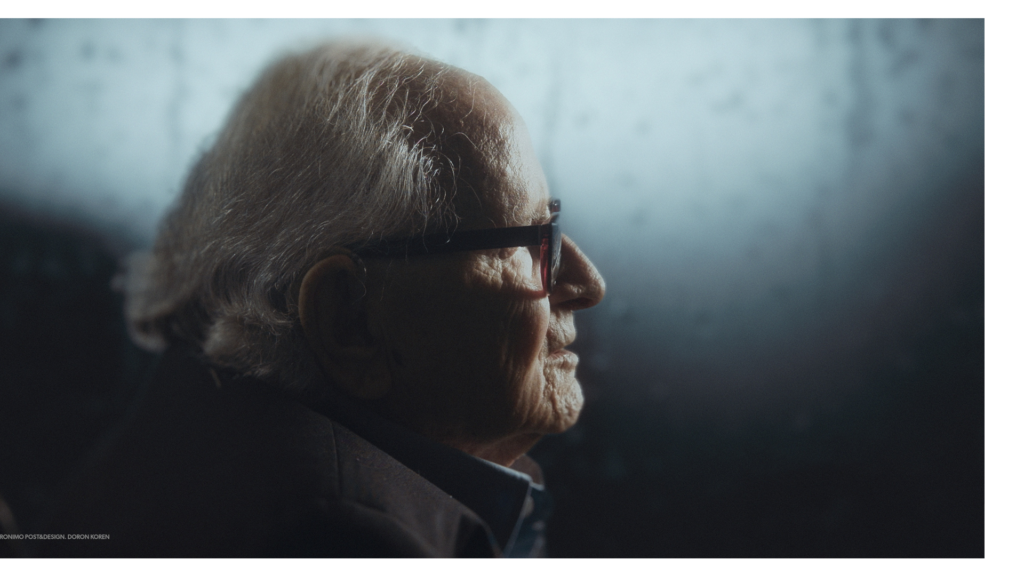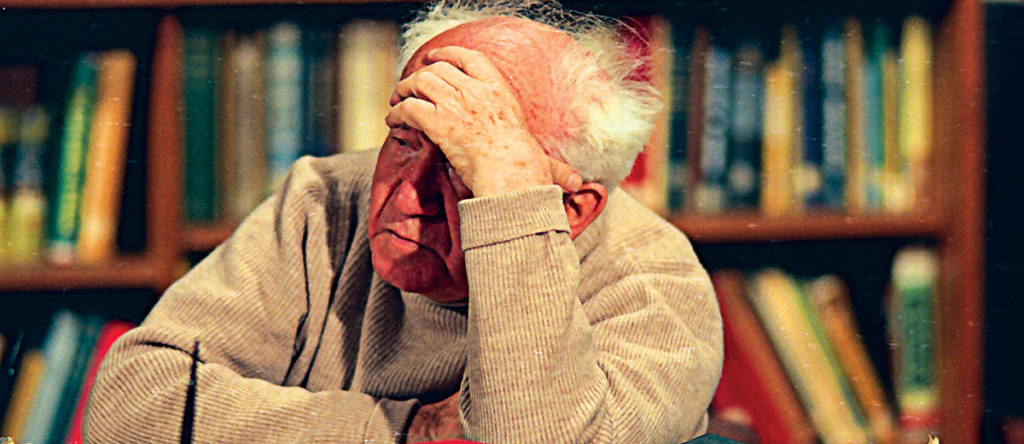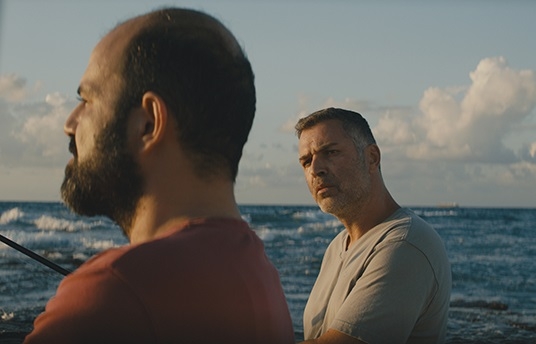
In Mediterranean Fever, a depressive writer becomes friends with his shady neighbor and the two embark on a dark journey.
Waleed (Amer Hlehel) is an Arab Israeli living in Haifa, and he’s left his job as a bank clerk to write a novel. His wife’s job as a nurse supports them, and Waleed handles the laundry and schleps the kids to school. The novel is not going well because Waleed suffers from depression; he is so paralyzed with hopelessness that he wants to give up on the therapist that his wife sends him to.
Waleed initially disdains his new, less-educated neighbor Jalal (Ashraf Farah), who day drinks, smokes and, when Waleed is staring at his blank screen, listens to obnoxiously loud music. Jalal is a whiz at anything construction-related and is generous with Waleed’s family. But Waleed is finally drawn to Jalal’s sketchiness: Jalal owes well more than he can pay to some menacing gangsters, is comfortable with his own brutal means of informal debt collection, has a girlfriend on the side and knows his way around the underworld.
Waleed’s wallowing in despair is only brightened when he recognizes that Jalal is a crook (but for an especially morbid reason we learn later). And he sparkles when he finally figures out the cause of his young son’s gastrointestinal distress (the movie’s title is a play on this).
In her second feature, Israeli Arab writer-director Maha Haj has created two memorable guys, and the story of Mediterranean Fever is entirely character-driven. Much of the humor stems from the odd couple of Waleed and Jalal.
I don’t want to describe the tone of Mediterranean Fever, as I do many films, as “darkly funny” because its tone is singular. Haj has written a story about that unfunniest of topics, depression, and keeps us watching with subtle, observational humor.
After a slow burn, Mediterranean Fever pays off with a shocking twist, followed by an epilogue with a character’s hilarious reaction to learning a new neighbor’s occupation. And, yes, that scene is darkly hilarious.
Most of the Arab films we see from this part of the world are about people living in Palestine and occupied territories. In Mediterranean Fever, we glimpse into the day-to-day life of Israeli Arabs – and middle-class Israeli Arabs at that. We also see a Haifa where middle- and working-class families occupy apartments right across the road from a glorious beach; (In the US, these would all be converted into short-term vacation rentals.)
Mediterranean Fever won the Un Certain Regard screenplay prize at Cannes. I screened Mediterranean Fever for the SLO Film Fest; it’s playing at the 2024 San Francisco Jewish Film Festival – July 19 at the Vogue and July 31 at the Piedmont.


